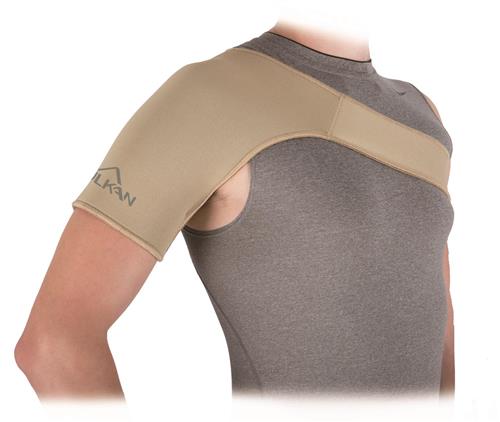
Shoulder Pain

Shoulder pain is an extremely common complaint with many causes.
Signs that you should seek treatment include:
• Shoulder pain that persists beyond a few days
• Shoulder pain that occurs at night or while resting
• Inability to raise the arm
• Difficulty carrying objects or using the arm
• Swelling or significant bruising around the joint or arm
• Injury that causes deformity of the joint (dislocation)
• Any other unusual symptoms
As with any other pain condition, appropriate treatment is needed to avoid it turning into a recurrent or chronic problem that is harder to resolve.
Common causes of shoulder pain include:
Referred pain from the neck: a pinched nerve or muscle spasm in the neck will often refer pain to the shoulder area.
Bursitis / Rotator Cuff Tendinitis: bursitis and tendinitis of the rotator cuff muscles causes impingement syndrome. This is the most common diagnosis in patients with shoulder pain.
Rotator Cuff Tear: different degrees of rotator cuff tears can occur. Severe of full thickness tears of the rotator cuff tendons may need surgery.
Frozen Shoulder: also called ‘adhesive capsulitis,’ this is a common condition that leads to severely restricted and painful movement of the shoulder.
Calcific Tendinitis: calcium deposits sometimes form within the rotator cuff tendons.
Shoulder Instability: this is caused by weakness of the muscles and ligaments that support the shoulder. Instability can be caused by a traumatic injury such as shoulder dislocation
Shoulder Dislocation: an injury that occurs when the arm dislocates from the shoulder socket.
A/C separation, this injury is the result of a disruption of the acromio-clavicular joint between the collar bone and the shoulder blade at the top of the shoulder.
Labral Tear: the labrum is comprised of thick fibrous tissue that helps keep the ball of the shoulder joint in place. More severe tears may require surgery.
Shoulder Arthritis: this is less common than arthritis of the hip and knee, but when severe may require joint replacement surgery. Arthritic changes are more commonly found in the A/C joint.
Biceps Tendinitis: the biceps tendon can be strained by over lifting, either one episode or a repetitive strain. This causes pain at the front of the shoulder.
Treatment of shoulder pain must target the cause of the problem to be effective. It is therefore important to accurately diagnose the shoulder problem before any treatment can start.
Rest: this is the first treatment for many painful conditions, especially injuries that cause shoulder pain. It is important to keep in mind that prolonged immobilisation can ultimately cause a frozen shoulder. Ice and heat packs : a rule of thumb to remember is to use ice for the first 48 hours after an injury, then use heat thereafter. Heat is appropriate for more chronic shoulder pain as it increases blood flow and helps relax the muscles.
Shoulder exercises: targeted exercises can help strengthen weak muscles and improve shoulder function. Shoulder stretches can help improve mobility and flexibility, as well as relieve pain.
Anti-Inflammatories: there are many natural alternatives to pharmaceuticals, including targeted nutritional supplements, herbal and homeopathic medicines.
Cortisone injections: this commonly used (some would say over used) medical treatment can be a useful adjunct to chiropractic treatment, but is an invasive approach and not without side effects.
For shoulder pain consultation, diagnosis and treatment, contact us at Blue Vista Health Centre.
Our service area includes Bullaburra, Wentworth Falls, Lawson, Leura, Katoomba, Hazelbrook and the greater Blue Mountains.